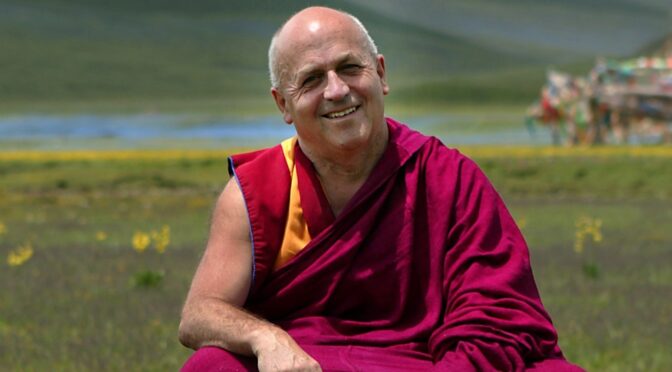Matthieu Ricard is a Tibetan monk with the title of the ‘worlds’s happiest man’. The 69 year old media icon got this title from the University of Wisconsin’s neurology department. Ricard participated in a 12 year study of meditation and compassion. This research pertains specifically to a field known as neuroplasticity; an umbrella term for changes of the brain over the course of an organisms life. This field is attempting to show that the brain can undergo continual and permanent changes through conscious and unconscious means.
Over the course of 12 years, 265 sensors were placed on the heads of hundreds of participants. While the sensors were attached scientists had subjects interacting with stimuli and meditating. In their free time with out the sensors attached they were instructed to practice meditation for 15-20 minutes a day. All the participants showed marked increase in the areas of the brain pertaining to empathy, positivity and general cognitive abilities such as learning abilities, focus and memory.
Ricard’s brain scans showed the most impressive results. His brain, while meditating showed production of gamma waves at levels, ‘never before reported in the neuroscience literature’. Scans also indicated an excessive amount of activity in his left prefrontal cortex when compared to his right counter part. Researchers surmise that this difference is a physical indication of the capacity for happiness and the negation of negative emotions. Ricard’s was shown to be much higher than any other subject tested for this in this manner.
The experiment showed that long time practitioners had permanently modified their brains to be better geared for happiness and compassion but even people who were not ‘consistent practitioners showed massive increases in joy, focus and compassion.
After the university claimed him to be happiest man in the world the internet ran with the title. Riccard tours the world giving dharma talks on the benefits and applications of meditation. He uses the publicity handed to him in a very productive manner. His talks have similar themes no matter who he speaking to. Long time practitioners and new comers alike can benefit greatly from his points of interest.
Stop thinking ‘me, me, me’
If your meditative practice is centered around you it is bound to not succeed. The broader the focus, the more benefits you will reap. There is a line of thought in mountain biking that if you can’t stop yourself from focusing on the rock you want to avoid then you will eventually hit it. Even if your every thought about the rock is bent on avoiding it, you are building the negative potentials up.
You are pouring energy into the problem instead of the path. A productive way of looking at this example is to not make the obstacles a prevailing element. Think instead of the journey, the grit of the path, the breeze that is cooling you. There is so much else going on in your ride, it would be a shame if all you focused on was rocks.
“If your mind is filled with benevolence, you know — the passion and solidarity … this is a very healthy state of mind that is conducive to flourishing,” Ricard says. “So you, yourself, are in a much better mental state. Your body will be healthier, so [it] has been shown. And also, people will perceive it as something nice.”
Start Training Your Mind Now And At All Times
Ricard points out the infinity that is your mind. There is unlimited potential for both productive and unproductive thoughts. For instance, your mind has the tendency to focus on the negative or unchangeable aspects of your life. These elements are troubling and always effecting us and our plans in ways we’d rather it not. The brain will fatigue or injure itself in trying to sort them out. There is nothing to sort out though, something that is beyond our control is beyond our control so that energy would be better spent elsewhere.
The mind has to be trained like any other muscle we have. It needs to be trained to not react full force at every stimuli we encounter. Learning how to consciously redirect energy and focus is difficult. Just like physical training methods you need simply start where you are. Build on what you have not what you want. Keep your goal in mind and find that push.
15 to twenty minutes a day of seated mediation is a tall order. Society encourages multitasking on ridiculous levels. This is one of those ultimately fatiguing exercises. Prioritize your time and start with five minutes a day. If you have to take breaks then do so. Stand up, stretch, laugh go for a walk but get an accumulative time set that you force yourself to reach every day. This is how Ricard started and now he’s the world’s happiest man. The method works so give it a try.

